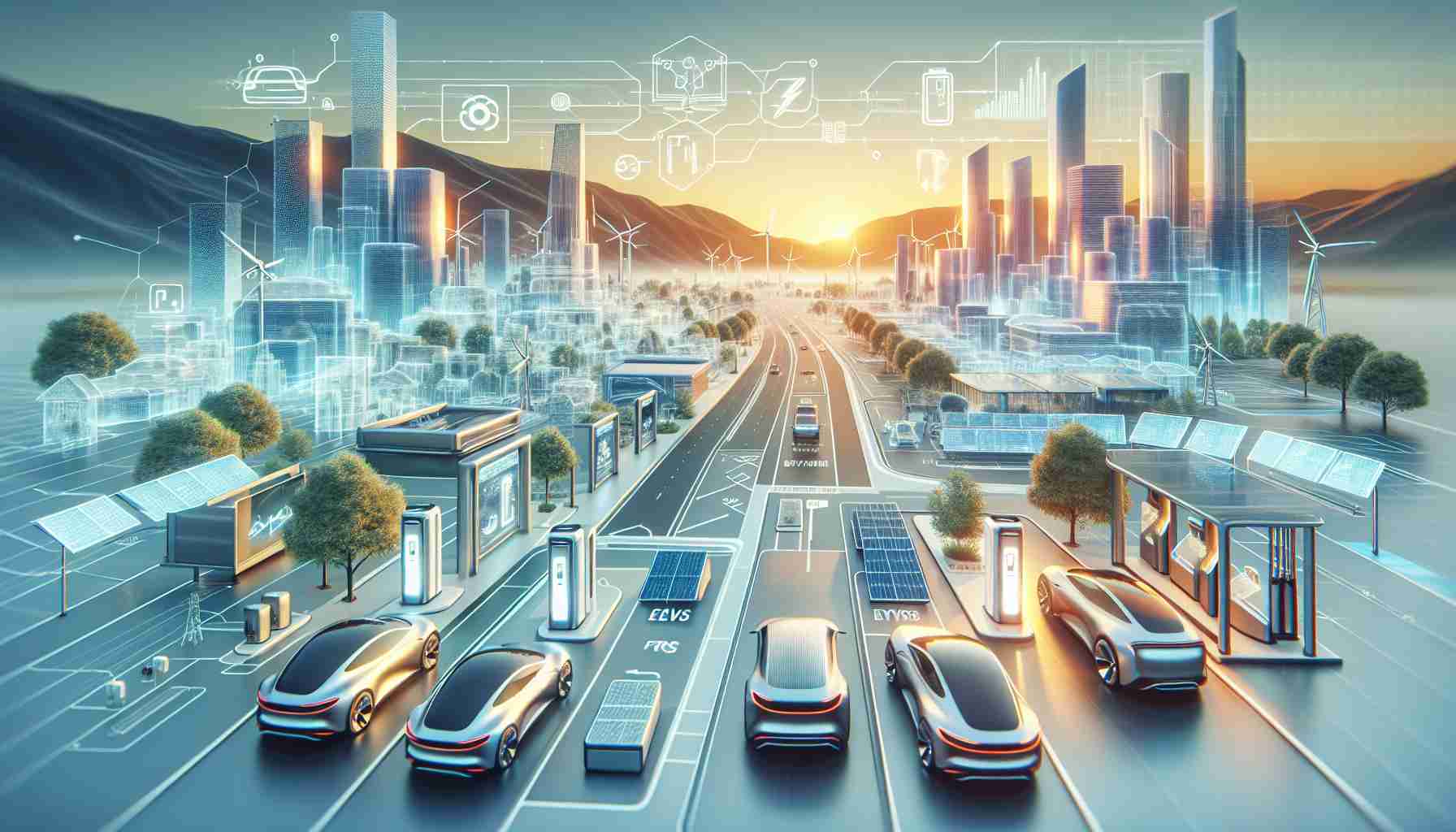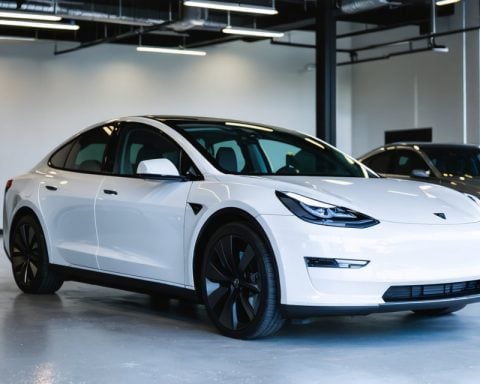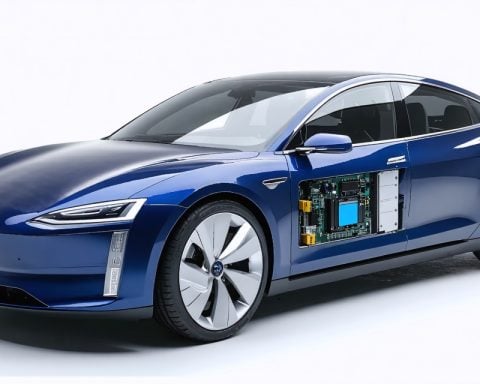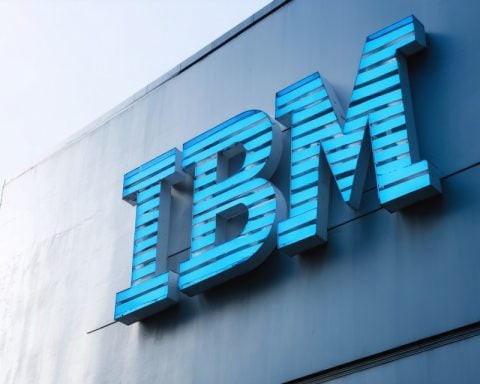- BYD is poised to innovate the EV industry with all-solid-state batteries, targeting demonstration use by 2027.
- The company’s roadmap suggests widespread adoption of these batteries in the 2030s.
- Since 2013, BYD has focused on refining sulfide electrolytes for improved stability and cost efficiency.
- Advancements could make solid-state battery costs comparable to liquid batteries, increasing accessibility.
- Mass production challenges include building new facilities and developing innovative processes.
- Solid-state batteries promise enhanced energy density, faster charging, and improved safety.
- BYD is well-positioned to be a leader in redefining driving experiences with these next-gen technologies.
A quiet storm brews in the electric vehicle arena as Chinese powerhouse BYD gears up to revolutionize battery technology. Picture a future where all-solid-state batteries, the elusive dream of engineers worldwide, finally become a tangible reality. BYD, flexing its industry muscles, plans to initiate “demonstration use” of these cutting-edge batteries by 2027, with widespread adoption forecasted for the 2030s.
Amidst the technological buzz at the China All-Solid-State Battery Innovation and Development Summit, BYD’s Chief Technology Officer, Sun Huajun, unveiled a roadmap teeming with promise. Since 2013, the company has delved deep into the labyrinth of battery innovation, refining their use of sulfide electrolytes for enhanced stability and cost efficiency. This relentless pursuit of excellence leads us to anticipate that the costs of solid-state batteries could soon rival their liquid counterparts, paving the way for broader accessibility.
While Sun paints an optimistic picture of affordability tied to volume production, challenges loom. The journey to mass manufacture these next-generation batteries demands constructing new facilities and pioneering novel processes. Yet, BYD’s unwavering dedication to leap over these hurdles positions it as a trailblazer in the electric future.
Imagine a world where high-end vehicles harness the power of solid-state batteries, merging seamlessly with lithium iron phosphate counterparts to redefine driving experiences. As BYD strides confidently towards this horizon, the potential impact on energy density, charging speeds, and safety could forever alter the EV landscape. The message is clear: the race toward a more electrifying future has gained an unstoppable momentum. Will BYD’s pioneering spirit lead the way? As the clock ticks closer to 2027, the world watches with bated breath.
Revolutionizing Energy: How BYD’s Solid-State Batteries Could Transform the Electric Vehicle Market
How-To Steps & Life Hacks
Transitioning to solid-state battery technology in electric vehicles (EVs) involves understanding battery performance, optimal charging practices, and integration capabilities. Here are simplified steps for the adaptation:
1. Research & Understand Solid-State Benefits: Solid-state batteries offer enhanced energy density, faster charging, and improved safety compared to traditional lithium-ion batteries.
2. Evaluate Compatibility: Before integrating these batteries into existing EVs, assess vehicle compatibility and any necessary modifications.
3. Optimize Charging Protocols: Use appropriate charging infrastructure to harness the faster charging times safely without degrading battery life.
4. Monitor Industry News: Stay updated with advances from companies like BYD for early adoption opportunities.
Real-World Use Cases
The impact of BYD’s solid-state batteries extends beyond individual EVs:
– Public Transport: City fleets could become more efficient, with reduced charging times and longer travel ranges.
– Commercial Logistics: With higher energy densities, logistics companies could rely on EVs for long-haul deliveries without frequent recharges.
– Renewable Energy Storage: These batteries provide reliable storage solutions for solar and wind energy, aiding in grid management and energy access.
Market Forecasts & Industry Trends
According to Allied Market Research, the global solid-state battery market is expected to reach $6.8 billion by 2025, growing at a CAGR of 48% from 2020 to 2025. This growth forecasts increased adoption in various sectors, including automotive and consumer electronics.
Features, Specs & Pricing
Solid-state batteries promise:
– Higher Energy Density: Potentially double that of traditional lithium-ion batteries.
– Improved Safety: The use of solid electrolytes reduces the risk of leaks and combustion.
– Extended Lifespan: Enhanced durability could lead to longer-lasting EVs.
– Expected Price: While initially higher, costs may decrease with mass production and advancements in technology.
Controversies & Limitations
Potential limitations exist:
– Manufacturing Challenges: Producing solid-state batteries on a mass scale requires new technological innovations and infrastructure.
– Material Availability: Dependence on specific materials could impact supply chains.
Security & Sustainability
Solid-state batteries are regarded as more sustainable due to their extended lifespan and reduced risk of harmful leaks. Security advantages include better thermal stability and resistance to explosive failures.
Insights & Predictions
By 2030, the widespread availability of all-solid-state batteries is likely to disrupt the EV market, leading to broader EV adoption, significant advancements in battery storage technology, and an overall shift towards sustainable energy solutions.
Pros & Cons Overview
Pros:
– Faster charging and extended range.
– Improved safety with less risk of fire.
– Higher energy densities.
Cons:
– Current high production costs.
– Limited large-scale manufacturing capabilities.
Actionable Recommendations
1. Stay Informed: Regularly monitor reports from industry leaders like BYD.
2. Consider Early Adoption: Prepare to upgrade to vehicles featuring solid-state technology for better performance.
3. Explore Energy Solutions: Evaluate how solid-state batteries can augment renewable energy systems.
For more on EV technology and innovations, visit BYD.
This discerning look at BYD’s role in solid-state battery development signifies a pivotal chapter in the evolution of the electric vehicle industry. Embracing these advancements will require strategic foresight, but the potential benefits underscore a transformative leap towards sustainable transport and energy solutions.













